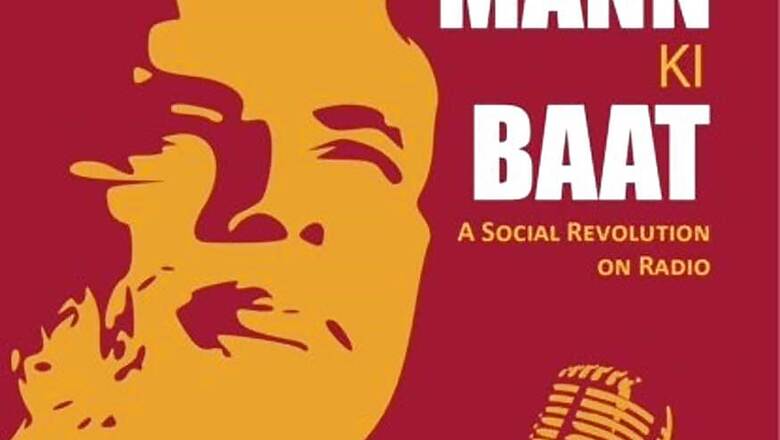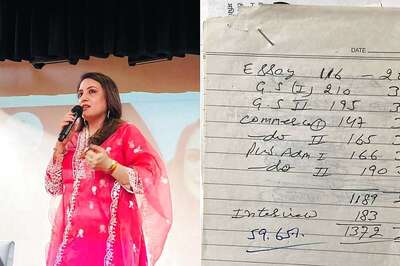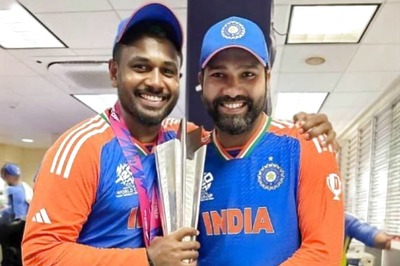
views
New Delhi: The genesis and evolution of Prime Minister Narendra Modi’s one-of-a-kind public broadcasting show Mann Ki Baat is set to be unveiled on Friday in the presence of President Pranab Mukherjee, Lok Sabha Speaker Sumitra Mahajan and Union Finance Minister Arun Jaitley.Japanese Prime Minister Shinzo Abe has written the preface for Mann Ki Baat - A Social Revolution on Radio, which will be presented to the President. “Talking on a one-hour radio show once a month while addressing challenging tasks as Prime Minister requires tremendous efforts, and I cannot but feel his strong passion for dialogue with his people,” Abe writes in the book.
The book reveals names that were originally considered for the programme ranged from ‘PM ke saath ru-ba-ru’ to ‘Varta Modi Ji Ke Saath’ to ‘Modi Vaani’.CNN-News18 got exclusive access to the book. Excerpts from the same:
“When Narendra Modi was asked whether he gets time to read all the letters, he said:
So, if not Narendra Modi, then who scans the letters? A preliminary scan is done by the AIR team itself. Every letter is read and a short list is made which is then sent to the Prime Minister. The choice of letters to be taken up in the final programme lies with Narendra Modi himself. AIR officials add that any letter that is political in nature or uses any abusive language (which is rare though) is not entertained at all. This is in sync with Narendra Modi's philosophy of keeping 'Mann Ki Baat' apart from the daily rough and tumble of politics.
While talking about the letters being received for 'Mann Ki Baat, Narendra Modi noted:
Narendra Modi could have opted for any medium. He chose the radio for a reason. 'Mann Ki Baat' is not about votes or television optics. It is about behaviour, responsibility, hopes, dreams, struggle and achievement in everyday life. Narendra Modi gave a very logical explanation on the subject:
"I have been a quintessential organisation man all my life. I know the difference the radio can make. American Presidents used it well. So many people heard Martin Luther King's 'I have a dream' speech on the radio. It has a transformative power like no other medium."
On the radio, Narendra Modi explains, he coaxes; he never imposes. He looks at both sides of the argument. This is why he can confidently say in one broadcast, "I know I am choosing those topics which put the government in the dock:' This is always more about the conviction that politics.
At a larger level, the 'Mann Ki Baat' exemplifies a new method of communication. It is direct, it is wide in its reach and it is soft in the nature of the message. It is in tune with the 'Modi way' of doing things reaching out to the people without barriers. The most effective example of how brand 'Mann Ki Baat' has become a part of the mainstream is seen in how the opposition leaders use it to criticise Narendra Modi. In August 2015, the Congress President said, "The champion of 'Mann Ki Baat' has retreated into a 'maun vrat' (vow of silence):' She was referring to the ongoing opposition pressure on the government to dismiss the External Affairs Minister, Sushma Swaraj and Rajasthan Chief Minister, Vasundhara Raje on perceived corruption charges. In both cases, the party and the government firmly backed their leaders. In September 2015, at a programme in Odisha, Rahul Gandhi pointed out that Narendra Modi only talks about his 'Mann Ki Baat' and ignores the 'Mann Ki Baat' of the rest of India. He compared the 'Mann Ki Baat' to mere lip service.



















Comments
0 comment